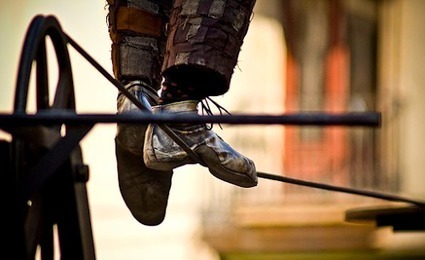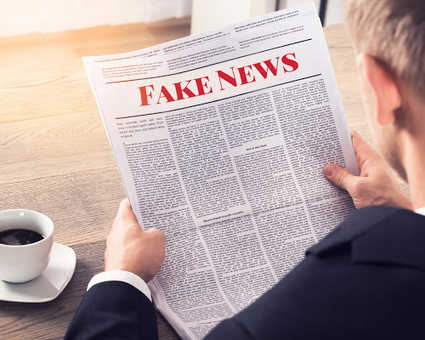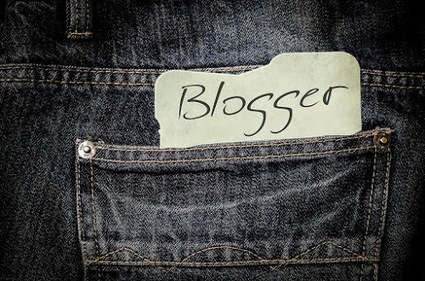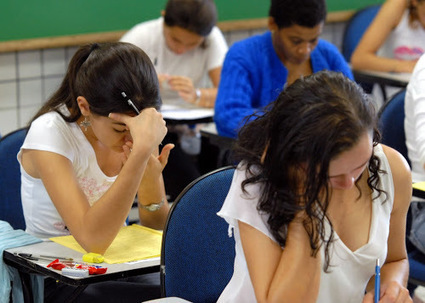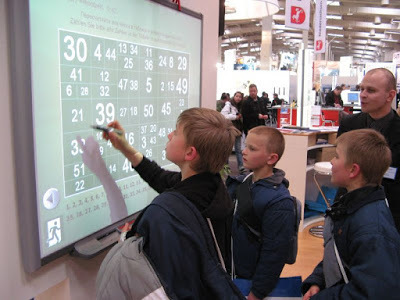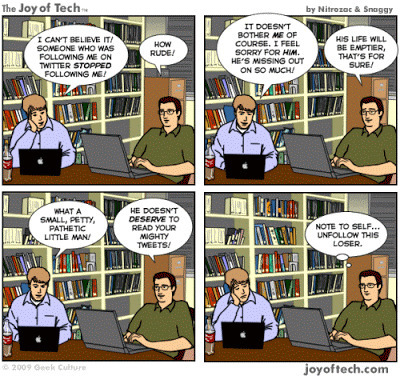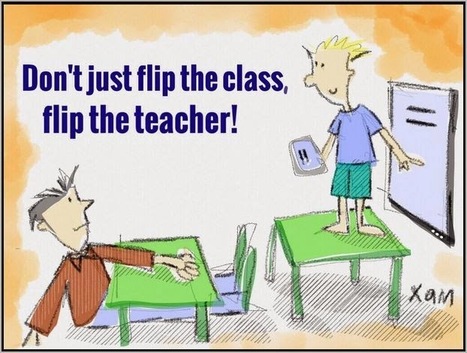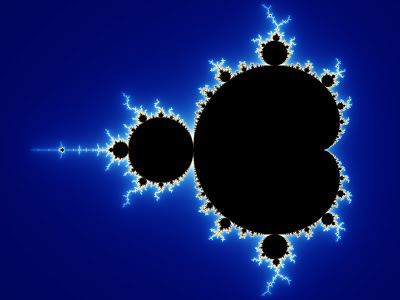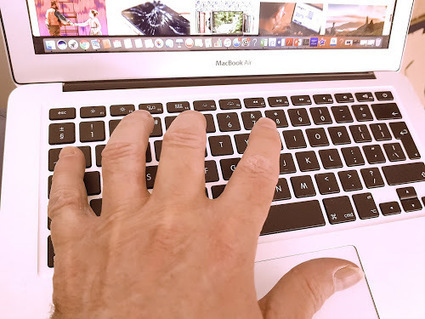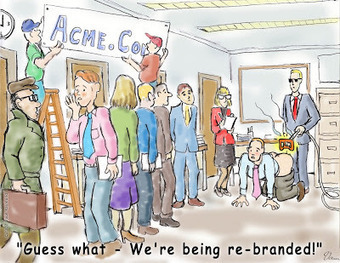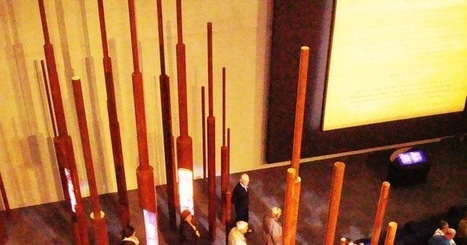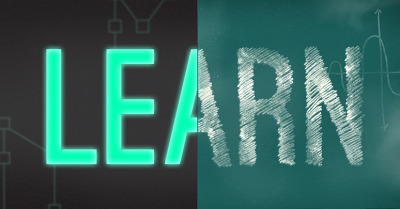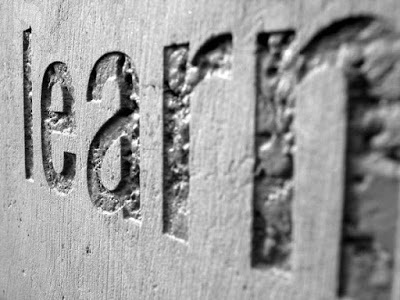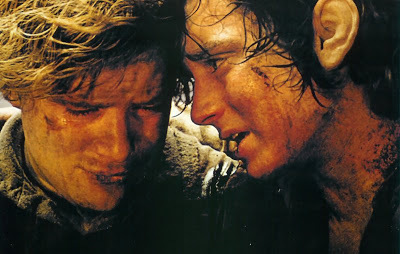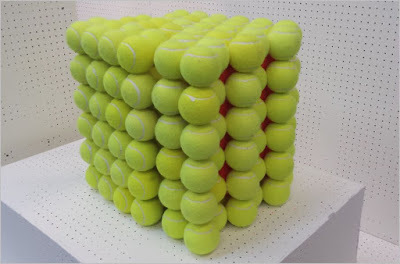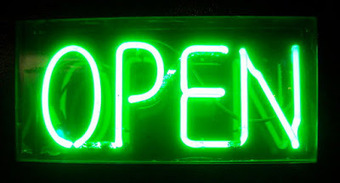 Your new post is loading...
 Your new post is loading...
Here's another response to a question I received from participants during the recent webinar I presented for EDEN. You can watch the entire webinar on YouTube at this link. The question is one of several I couldn't answer in full because of time constraints, so here is the question again with a few additional thoughts: A major challenge at the moment, especially for teachers, but also translated to students, is keeping up with the curriculum. This limits the possibility of allowing students to learn on their own and finding their own path of learning. This period could be a window of opportunity in personalised learning, in finding students finding "their own pathway." How do you create a balance?
Fake news. Alternative facts. Deception. Lies.
The media seems full of reportage on how social media carries content designed to deceive users. This recent article from the BBC News website calls into question some of the electoral results, including allegations of deliberate targeting of voters during the Brexit referendum. There does seem to b growing evidence that this may have been perpetrated, but in the midst of all the hyperbole and accusations, what role does social media actually play in the deception of the masses? How much of these problems are actually the fault of the social media, and to what extent are Facebook, Twitter and other popular platforms actually culpable?
I'm often asked why I blog. What's the attraction? Is it worth the effort? How do I keep it going? Here are 5 reasons:
Fractals are varied, but the self-similar patterns such as the Mandelbrot Set replicate their patterns at every iteration, perfectly repeating themselves almost to infinity. Essentially fractals represent recursive mathematical equations, but don't ask me to explain exactly how they work - I'm not a mathematician. The important point here is that they continually repeat themselves, with no deviation from the original. And some education is similar in nature.
I presented this latest version of my digital literacies model at the 2016 Solstice Conference hosted by Edge Hill University. The components in the model are by no means exhaustive - I acknowledge there are many more literacies, some of which are emergent due to new technologies and services. What I have attempted here is to represent what I consider to be the most important, or most regularly observed literacies and try to place them in context. It's also important to note that these do not replace the conventional literacies of reading and writing, speaking and listening, but are supplemental to them.
There has been much consternation in recent weeks about the amount of standardised testing the British government is determined to impose upon English school children. Children don't learn any more or any better because of standardised testing, unless there is feedback on how they can improve. But SATs seem to be the weapon of choice for many governments across the globe. It seems that little else matters but the metrics by which our political masters judge our schools. At a recent head teachers conference, one of the most astute comments was 'you can assess without testing.' There are many ways to assess, and here are seven:
Learning technology is just about everywhere in education. Universities are replete with lecture capture tools, interactive media, web based content and person…
Who leads the learning in your institution? Is it the teachers, or students - or do both contribute equally to ensure the best possible conditions for learning? It's a fine balance.
I have often heard the argument that there is no evidence that technology improves learning. This is a vacuous claim that is either a) based on ignorance of the available research literature, or b) possibly the result of a deep seated fear, mistrust or dislike of technology in general. My usual response to such a claim is that children with special educational needs are a classic example of technology improving learning.
There are two types of people in the world. Those who get Twitter and those who don't.
We live in a rapidly changing world that requires people to have the ability to adapt much more quickly than in previous times, where events moved much more slowly. Education is not immune from these changes even though it is an inherently conservative system. In the face of significant innovation in educational practice and as espoused in self-determined learning (heutagogy) and other perspectives, there are new skills to adopted by learners and learning leaders alike.'
If I'd suggested flipping the teacher while I was still at school, I would have been in serious trouble. Given my reputation though, it wouldn't have been out of the ordinary.
My point was that when education is conducted in fractal mode, it does not obtain its full potential and students are disadvantaged. I asked my audience to consider the difference between recursive and discursive education approaches. In recursive education, we see reproduction of knowledge, and we see students learning content towards a product - memorising facts and then reproducing them for the examiner. In discursive education, students are allowed to digress from the pathway, investigate new and untravelled pathways, and discover for themselves. Instruction is minimised, learning takes centre stage in the process
|
I''m currently writing several short online courses for educators, and I've just published the second module in my online series about digital learning. It focuses on digital competencies and literacies and takes under an hour to complete.
I've written about digital literacies in previous publications, because I consider them vital for the success of any technology supported learning ventures. I believe that unless we develop appropriate digital literacies, we will be less able to exploit the power and unlock the potential of new and emerging technologies in education.
Here are a few links to previous posts:
What digital literacies?
Crossing the divide: Transliteracy
Digital literacies in the age of remix
Digital readiness
What do you think is the teacher's worst enemy? Some would say lack of time. Others would say unsupportive leadership, or the dreaded government inspection. Rigid curriculum, lack of resources and bad student behaviour may also be high on the list for many educators. For me, the worst enemy is bad theory. Bad theory, when accepted without challenge, can lead to bad practice. It's insidious, because bad theory that is accepted as fact without a full understanding of its implications, results in bad teaching, and ultimately, learners will suffer.
Learning technology is just about everywhere in education. Universities are replete with lecture capture tools, interactive media, web based content and more…
Via Ana Cristina Pratas, Jim Lerman, Becky Roehrs
I have a confession to make. Over the festive period I binge-watched a number of DVD boxed sets. I watched multiple episodes of the Walking Dead, Scandal and Game of Thrones. It hasn't got any better. Now work has started again, I've been spending time each evening watching The West Wing.
If you are a professional, you should have a PLN. Your PLN (personal or professional learning network) is the community of people you interact with and learn from on a regular basis. They may be people you meet on a daily basis, but more often than not in the digital age, many PLNs are comprised of people we interact with on social networking sites. In my opinion, the most powerful PLN building tool is Twitter. For me, Twitter is an incredibly powerful yet simple tool that enables me to connect with, and learn from, specialists, experts and enthusiasts in my chosen field of expertise. Put simply, I follow teachers, learning professionals and education experts from all around the world - over 1400 at my last count.
I just watched a video of teachers at Geelong College responding to the question What is Learning? (the video is below - take a look).
From this, the many definitions and perspectives that were offered made me think that each could be elaborated on, supported with pedagogical theory and opened up for further discussion.
Learning technology is just about everywhere in education. Universities are replete with lecture capture tools, interactive media, web based content and person…
Pedagogy is not about directing children. Nor is it, in Brennan's terms 'concerned with the work or art of being a teacher.' Those are mere glimpses of the reality, and only a part of a larger equation. In its absolute form, pedagogy is not just about teaching. It does not simply concern itself with the 'delivery' of education or content. In the truest sense, teaching is just one element of pedagogy and not the entire story.
Humans have been telling stories since time immemorial. Narrative is built into our collective memory, and is part of what makes us human. Stories are compelling. Every story is a lesson, and every lesson can be a story. Teachers can learn a lot from the techniques writers use.
Blended. It used to be something you did in the kitchen. With a machine. Saved you having to mix ingredients with your hands or a utensil. Took away a lot of the effort. Hopefully, the end result was edible. Now blended has come to mean something else, at least in the education domain. But what exactly does we mean when we talk about blended learning?
The future of learning is where all learners are connected to as many other learners and teachers as possible, so that learning is mobile, personal, limitless and unconstrained by configuration. The future of learning is connected, social, mobile and personal.
A new breed of academics is emerging in the digital age. They are the researchers and teachers who freely share their knowledge and studies online. They are circumventing traditional approaches and discovering new ways of sharing their work. They are the open scholars.
|
 Your new post is loading...
Your new post is loading...
 Your new post is loading...
Your new post is loading...







